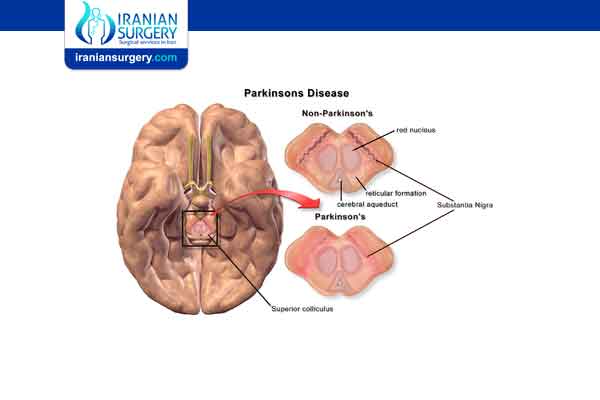Causes and risk factors of Parkinson disease

Risk factors of Parkinson’s disease
Causes of Parkinson’s disease
In Parkinson's disease, certain nerve cells (neurons) in the brain gradually break down or die. Many of the symptoms are due to a loss of neurons that produce a chemical messenger in your brain called dopamine. When dopamine levels decrease, it causes abnormal brain activity, leading to impaired movement and other symptoms of Parkinson's disease.
Read more about : Parkinsons disease treatment
Read more about : Complication of Deep Brain Stimulation for Parkinson’s disease
The cause of Parkinson's disease is unknown, but several factors appear to play a role, including:
. Genes. Researchers have identified specific genetic mutations that can cause Parkinson's disease. But these are uncommon except in rare cases with many family members affected by Parkinson's disease.
However, certain gene variations appear to increase the risk of Parkinson's disease but with a relatively small risk of Parkinson's disease for each of these genetic markers.
Read more about : Parkinsons disease stages
. Environmental triggers. Exposure to certain toxins or environmental factors may increase the risk of later Parkinson's disease, but the risk is relatively small.
Researchers have also noted that many changes occur in the brains of people with Parkinson's disease, although it's not clear why these changes occur. These changes include:
. The presence of Lewy bodies. Clumps of specific substances within brain cells are microscopic markers of Parkinson's disease. These are called Lewy bodies, and researchers believe these Lewy bodies hold an important clue to the cause of Parkinson's disease.
. Alpha-synuclein found within Lewy bodies. Although many substances are found within Lewy bodies, scientists believe an important one is the natural and widespread protein called alpha-synuclein (a-synuclein). It's found in all Lewy bodies in a clumped form that cells can't break down. This is currently an important focus among Parkinson's disease researchers.
Read more about : Who is Eligible for Deep Brain Stimulation?
Risk factors for Parkinson’s disease
Risk factors for Parkinson's disease include:
. Age. Young adults rarely experience Parkinson's disease. It ordinarily begins in middle or late life, and the risk increases with age. People usually develop the disease around age 60 or older.
. Heredity. Having a close relative with Parkinson's disease increases the chances that you'll develop the disease. However, your risks are still small unless you have many relatives in your family with Parkinson's disease.
. Sex. Men are more likely to develop Parkinson's disease than are women.
. Exposure to toxins. Ongoing exposure to herbicides and pesticides may slightly increase your risk of Parkinson's disease.

